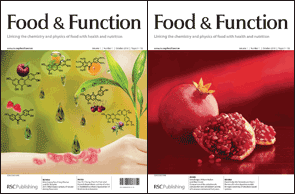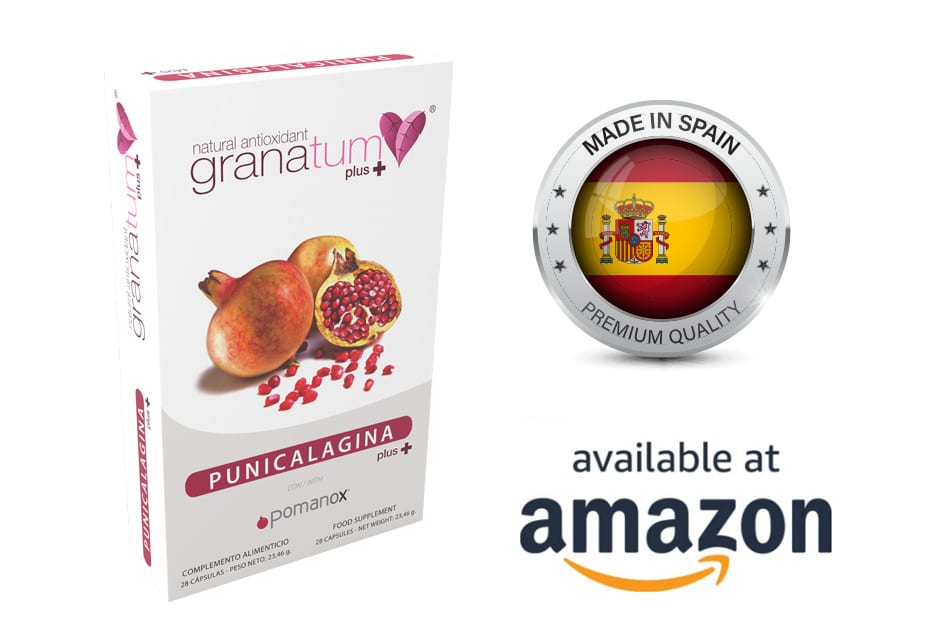
This study reveals some mechanisms by which pomegranate juice may have interesting and beneficial effects in human health.
COUNTRY: Spain, UK
CONDUCTED BY:Department of Pharmacy, Faculty of Health Sciences, San Jorge University, Zaragoza, Spain; Department of Pharmaceutical and Biological Chemistry, UCL School of Pharmacy, London, UK; adipocyte and Fat Biology Laboratory (AdipoFat), Unidad de Investigación Traslacional, Instituto Aragonés de Ciencias de la Salud (IACS), Hospital Universitario Miguel Servet, Zaragoza, Spain
PUBLISHED ON: Food and Function
RESEACH: Pomegranate juice and related products have long been used either in traditional medicine or as nutritional supplements claiming beneficial effects. Although there are several studies on this food plant, only few works have been performed with pomegranate juice or marketed products. The aim of this work is to evaluate the antioxidant effects of pomegranate juice on cellular models using hydrogen peroxide as an oxidizing agent or DPPH and superoxide radicals in cell free systems. The antiproliferative effects of the juice were measured on HeLa and PC-3 cells by the MTT assay and pharmacologically relevant enzymes (cyclooxygenases, xanthine oxidase, acetylcholinesterase and monoamine oxidase A) were selected for enzymatic inhibition assays. Pomegranate juice showed significant protective effects against hydrogen peroxide induced toxicity in the Artemia salina and HepG2 models; these effects may be attributed to radical scavenging properties of pomegranate as the juice was able to reduce DPPH and superoxide radicals. Moderate antiproliferative activities in HeLa and PC-3 cancer cells were observed. However, pomegranate juice was also able to inhibit COX-2 and MAO-A enzymes. This study reveals some mechanisms by which pomegranate juice may have interesting and beneficial effects in human health.
RESEARCH SUMMARY: The antiproliferative effects of the juice were measured on HeLa and PC-3 cells by the MTT assay and pharmacologically relevant enzymes (cyclooxygenases, xanthine oxidase, acetylcholinesterase and monoamine oxidase A) were selected for enzymatic inhibition assays. Pomegranate juice showed significant protective effects against hydrogen peroxide induced toxicity in the Artemia salina and HepG2 models; these effects may be attributed to radical scavenging properties of pomegranate as the juice was able to reduce DPPH and superoxide radicals. Moderate antiproliferative activities in HeLa and PC-3 cancer cells were observed. However, pomegranate juice was also able to inhibit COX-2 and MAO-A enzymes. This study reveals some mechanisms by which pomegranate juice may have interesting and beneficial effects in human health.
YEAR: 2015
 RESEACH
RESEACH